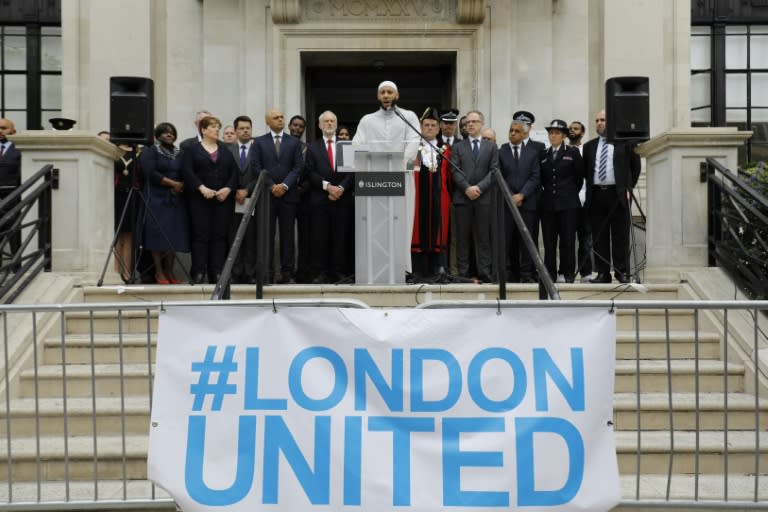UK marks anniversary of London mosque terror attack
Britain on Tuesday marked the first anniversary of a deadly terror attack against a north London mosque, with Prime Minister Theresa May vowing that "vile extremism" will not divide the nation. Mourners held a minute's silence at 9.30am (0830GMT) to remember father-of-six Makram Ali, who died when Darren Osborne ploughed a hire van onto a crowded pavement close to Finsbury Park mosque, intending to kill as many Muslims as possible. The attack, on June 19 last year, also left 12 injured. Home Secretary Sajid Javid, London Mayor Sadiq Khan and opposition Labour leader Jeremy Corbyn Mohammed Mahmoud, all attended the event at nearby Islington Town Hall, along with the imam of the mosque, Mohammed Mahmoud. "A man ridden with racism drove a vehicle into a crowd of people and tried to divide and destroy our community," said Corbyn. "We will never allow them to destroy us. Stay united, stay together, support each other!", he added. Osborne, 48, left a note in the van, in which he said he was seeking revenge for Islamist terror attacks and a child sex scandal, and named mayor Khan as someone that he also wanted to kill. The mayor paid tribute to the response of the local community. "The way this community has responded has inspired us all," he said. "When Londoners face adversity we stand up for our values. This is our city, this is our way of life. For those who seek to divide us, the message is 'you will never succeed'." Osborne, from the Welsh capital Cardiff, was in February sentenced to life in prison with a minimum 43-year term. "Last year's cowardly attack which targeted innocent worshippers leaving Finsbury Park mosque is an attack on all of us," May said in a statement. "As with all acts of terrorism the intention was to divide us but we will not let this happen. - 'Rapidly radicalised' - "We are a country of many faiths and freedom of worship and respect for those of different faiths is fundamental to this country's values and these values will never be broken by vile extremism," she added. When passing sentence at a London court, judge Bobbie Cheema-Grubb said that Osborne had been "rapidly radicalised" and that his "mindset became one of malevolent hatred". "In short you allowed your mind to be poisoned by those who claimed to be leaders." Osborne became radicalised over a month last year after watching a television programme about a child sex ring scandal involving a gang of mainly Muslim men in northern England. Nigel Bromage, a former leader of a neo-Nazi group who later turned anti far-right campaigner, called the attack "a sobering reminder that the threat from far-right extremism is no different from the Islamist threat. "Both share a common desire to spread fear and divide society, ultimately two sides of the same coin," he added. Witnesses recalled Osborne saying: "I've done my job, you can kill me now" and "at least I had a proper go" in the immediate aftermath of the attack. The handwritten note found in the van read: "Why are their terrorists on our streets today? "Islam's ideology doesn't belong here and neither does sharia law." The Manchester suicide bombing in May 2017 and the London Bridge van attack and stabbing rampage in June that year further fuelled his obsession, the court was told.



